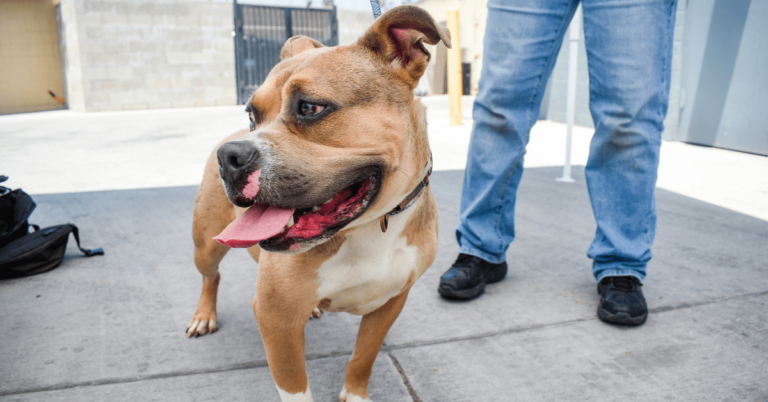How to Select a Shelter Pet: Choose Personality Over Breed

When it comes to adopting a new shelter pet, what is the first criteria that comes to mind? If you answered, “Well, breed, of course!”, you are definitely not alone. People tend to gravitate toward the breeds they think are cute. However, when it comes to adopting or rescuing a shelter pet, breed is not the best place to start.
Why Choosing Based on Breed Frequently Doesn’t Work
Even though 25% of shelter pets are purebreds, if you have your heart set on rescuing a 9-week-old red Boston Terrier, chances are, you are not going to find it. If you do find it, you will most likely have to compete with a bunch of other people who want the same thing. This makes the adoption or rescue process a frustrating experience. And unfortunately, the individual who wanted to rescue in the first place may end up just buying their desired dog from a breeder instead. This also leads to many wonderful and amazing pets being overlooked at the shelter. Selecting a pet based on looks can also lead to personality mismatch, resulting in a stressful union between pet and owner.
The Animal Farm Foundation has done extensive research into Dog DNA and can conclusively prove that looks do not equal personality. Choosing a pet based on breed is a contributing factor to the 25% of purebred pets that end up in shelters and rescues. Some even have behavioral issues stemming from an owner who was incapable of managing the needs of that particular breed.
How to Choose a Pet Based on Personality
Being experts in pet adoption, our main focus is to match potential adopters to the pet that best suits their lifestyle. We often urge adopters to throw all those old misconceptions about breed out the window and start their search from a wholly different place: personality! If you, or someone you know, is thinking about adopting a new pet from a shelter, here are some key points to think about:
Energy Level
High, medium or low? Although the breed or age of the animal does have some influence over energy level, it is definitely not the main factor. The energy level of your new pet is something that should complement your own lifestyle and personality.
Do you love to spend time outdoors hiking or riding bikes? Are you willing to dedicate two hours every day to exercising with your dog so they can be calm and well-behaved while you are at work? Then a high-energy dog may be perfect for you! Or are you a bit of a couch potato? If your ideal weekend is curling up on the couch having a movie marathon, a low-energy cuddle buddy will be a better fit for you.
And what about cats? Do you want a playful cat that will be ready to chase that dreaded and mysterious red dot? Then just like the high-energy pooch personality, a young cat or kitten is the type of feline for you. Or do you live in a small space and need a good solid nine hours of uninterrupted sleep to function? Then an older cat is a better fit for you!
If neither high nor low energy describes you perfectly, there are also medium-energy cats and dogs available that would be perfectly content with a couple of 15-minute walks or a 20-minute play session with a cat dancer every day.
Comfort Around Kids
When you have children, keeping them safe is your number one priority. Every pet in the shelter has a backstory and it’s not always clear which ones will have the patience to handle all the pulling, tugging and petting that excited children can dish out. Fortunately, when adopting from a rescue or smaller pet adoption center, many of the available pets will have spent time with a foster family, many in homes with small children.
If you plan to adopt a pet, be sure to talk to the adoption counselor about your concerns. Most often, they will be able to tell you which pets do okay with children and which ones don’t. Also, it’s a good idea to bring your children along to meet your potential new pet!
Shyness Level
If you already have a furry companion at home, and you want to find them a friend, let the people at your shelter know! This is important to be aware of if you want to keep your house, pets and sanity in harmony. If this was a perfect world, there wouldn’t be a need for shelters and every animal would get along, but until that happens, be sure to look into pets that are sociable with other animals. Having a multi-pet household is a lot of fun – just be sure to make proper introductions first.
Lastly, think long and hard about why you really want to rescue a pet. Are you passionate about making a life-saving difference? If that is your main motivation, consider adopting a pet often overlooked in shelters, like a shy pet or an older animal. These animals need a hero, and you cannot imagine the gratification and deep bond that comes from taking one of these animals home.
We want everyone to know what we already know: Breed, age, color and size don’t make the pet! Rather, their personality, and adopting a pet based on your own personality and life, is key to creating a match made in heaven!


